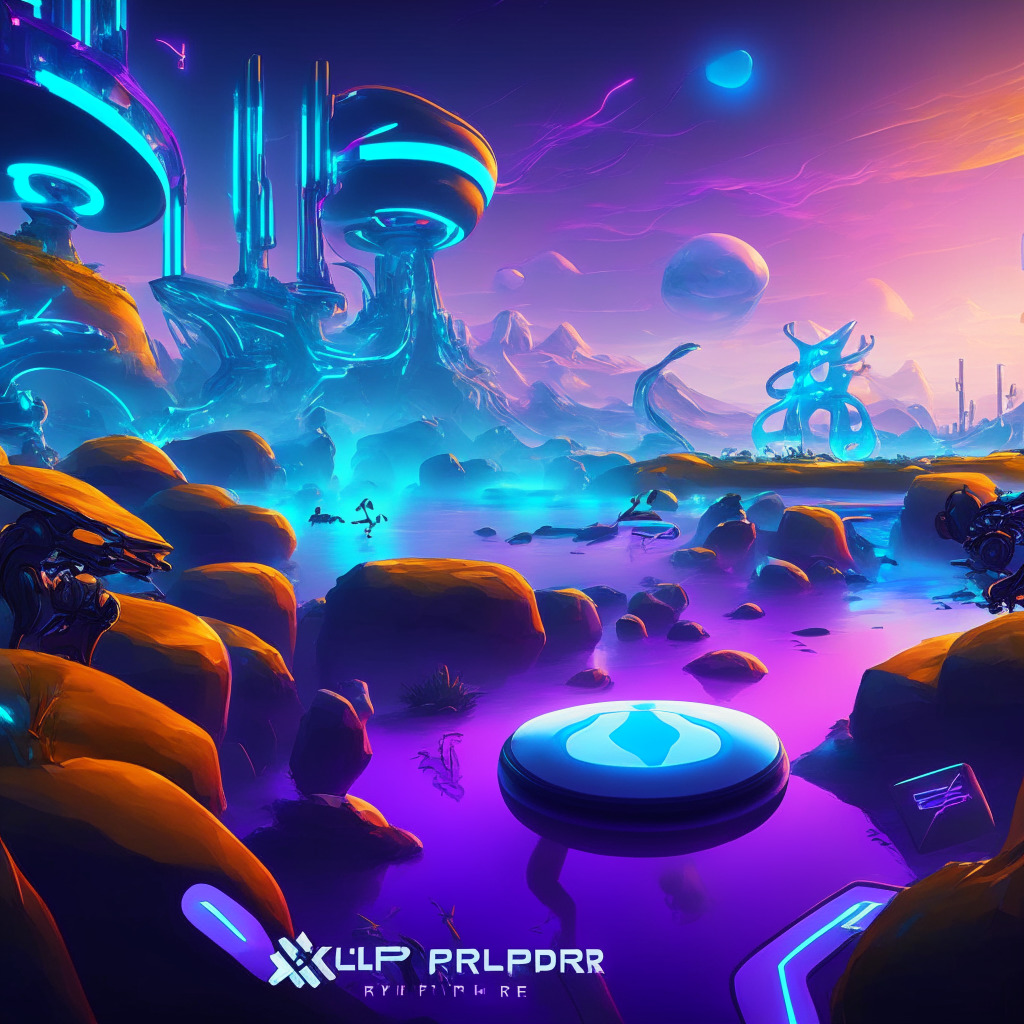A windswept evening at the majestic Slane Castle, Ireland becomes a setting for an innovative experiment in blockchain technology, as 5,000 fans of British megastar Harry Styles use their smartphones to claim the nascent blockchain-based rewards during his concert. Invited to use the EVENTZ app, a collaboration between Web3 infrastructure company Co:Create and the popular Ethereum sidechain Polygon, these fans took the first steps towards creating their own digital wallets. The event’s immense popularity was evidenced by the staggering 100,000 unique interactions the app saw.
As EVNTZ founder Kim O’Callaghan pointed out, integrating blockchain technology is a game-changer for event management as it can establish a much-needed connect with the audience. For years, event-goers haven’t received their due acknowledgment. Essentially, whether you’ve attended one event or a hundred, there has been a lack of recompense or loyalty rewards mechanism.
Creating a vibrant community, establishing a rewarding system and showing loyalty for regular attendees – these are the areas that have been hitherto ignored. This integration of Web3 technology via the self-custodial wallets can potentially revolutionize these key aspects, rewarding fans for purchasing tickets, engaging with social content, buying merchandise, or even booking a ride home!
This type of innovation has trickled well beyond the harrowing and cold walls of the Slane Castle. The trend of employing Web3 in the music industry and vice versa has begun to leave its mark around the globe. The recent acquisition of Blocktones, a Web3 music startup, by Web3 entertainment company Hume, aims at diversifying the creation of open-sourced music beats.
Moreover, the success of NFTs has led music streaming giant Spotify to venture into music curation for NFT owners. And facilitating avenues for musicians, record labels, and artists to create and sell unique digital assets, Beatport partnered with Polkadot to introduce a digital collectible market.
Enterprises are constantly seeking ways to amalgamate music and blockchain technology. A vivid example is the strategic alliance between Warner Music Group and Polygon aiming to aid innovation in the music space by supporting developers and dapps on the Polygon network.
While all these initiatives forge the path towards a more rewarding experience for the concert-goers, the intrusion of the blockchain into the intimate space of music does raise questions. Public opinion remains varyingly sceptical and excited about these imminent changes. The delicate balance between ensuring fan rewards and preserving the soul of music is a challenge for the industry. Web3 promises to augment our interaction with music, but the lingering question is – at what cost?
Source: Cryptonews




